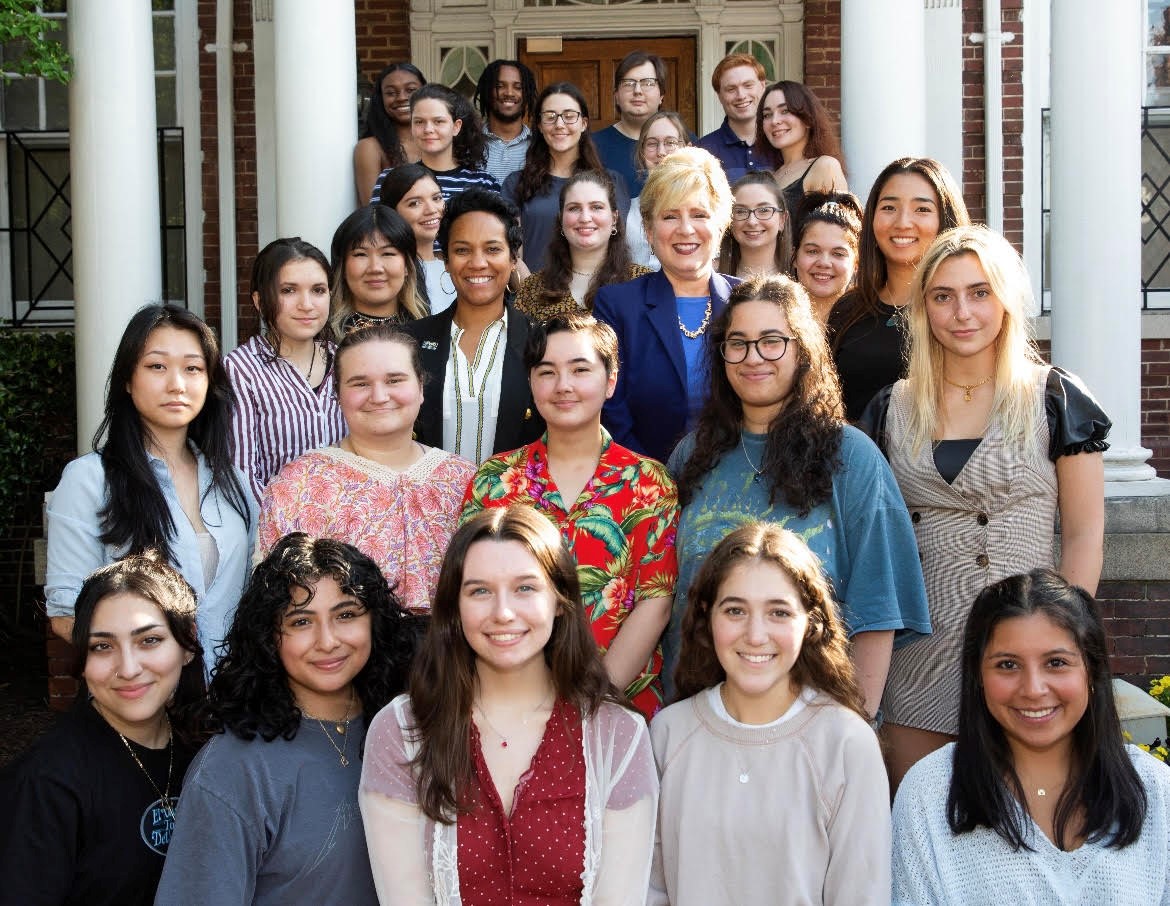News
Future-focused: Julia Tracy takes an interdisciplinary approach to environmentalism

by Rachel Zeeve
Growing up in the small coastal town of Norfolk Virginia, Julia Tracy witnessed firsthand the effects of climate change. Now an undergraduate student in the Wilder School’s urban and regional studies and planning (URP) program, Tracy is taking on these challenges at the intersection of policy, environmental science and urban planning.
“Flooding has been heavier and hurricane season is getting stronger every year,” she said. “The URP program seemed like it would offer me the tools and resources to build resilience in places like my hometown.”
Motivated by a passion for fostering community-centric sustainability, Tracy is interested in a diverse range of career paths. After she graduates in the spring of 2023, she plans to attain a master’s in urban and regional planning with a sustainability focus. From there, she hopes to work for a consulting firm to develop sustainable planning practices and partner with city developers and policymakers. She also aspires to become a professor.
Coursework at the Wilder School is helping to prepare her for any path she chooses. “My academic goal is to immerse myself in as much interdisciplinary work as possible,” said Tracy.
Combining coursework and career with the Capitol Semester program
The Wilder School’s Spring 2022 Capitol Semester program has allowed Tracy to merge a formative internship experience with classroom learning to create a unique, hands-on exploration of environmental policy.
“I took the urban planning research methods course during my legislative internship at the Virginia General Assembly for Delegate Rodney Willett,” she said. “I was interested in the partisanship of environmental policy, so I created a research proposal looking into policy language to determine whether it has an effect on the passage of legislation. Determining how to make the legislative process more productive will allow for sustainable policy to be implemented in a timely manner.”
The Capitol Semester internship program earned her academic credit, the course a perfect complement to her real-world experiences. “The internship has given me the opportunity to understand the reality of the issues that are discussed in the classrooms,” she said. “It is one thing to talk about them, but a completely different experience learning hands-on.”
“Something special about the urban and regional studies and planning department is that the majority of professors currently work in the planning field... Planning is a field that is constantly evolving, so I appreciate their expertise in current events.” – Julia Tracy
This summer, Tracy also served as a victim and witness advocate intern at the City of Norfolk's Commonwealth Attorney's Office. In this role, she assisted victims of crimes through various stages of the court process, from answering questions to ensuring they have access to helpful resources. “I had the opportunity to create and organize a master document of resources that victims can be referred, she said. This document included housing, counseling, financial support, and childcare services.”
She was initially drawn to the internship by a desire to better understand the legal process as it relates to housing and eviction. “Richmond has the second-highest eviction rate nationwide and a lot of these eviction cases do not end up in court because residents do not have the means to follow through,” she explained.
“60% of those evictions happen in minority neighborhoods. The court process can be quite intimidating for anyone, but especially for groups that have been historically marginalized. This internship gave me a better understanding of the basics of the court process, which has allowed me to look at issues I am interested in from a different perspective.”
Understanding the complexities of planning
With a strong range of real-world experience under her belt, Tracy’s classroom theories are brought to life in a new way. “Something special about the urban and regional studies and planning department is that the majority of professors currently work in the planning field,” she reflected. “They present timely and relevant knowledge. Planning is a field that is constantly evolving, so I appreciate their expertise in current events.”
By delving into the complex social issues that surround and characterize environmental problems, Tracy is emerging from the Wilder School career-ready.
“Throughout my courses, I have realized the importance of looking at the big picture — this is especially true when looking at sustainability issues because one solution to a specific environmental challenge might cause other challenges,” she said. “It’s a complex and difficult puzzle, but it keeps me engaged.”